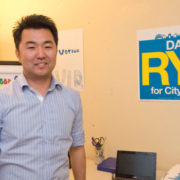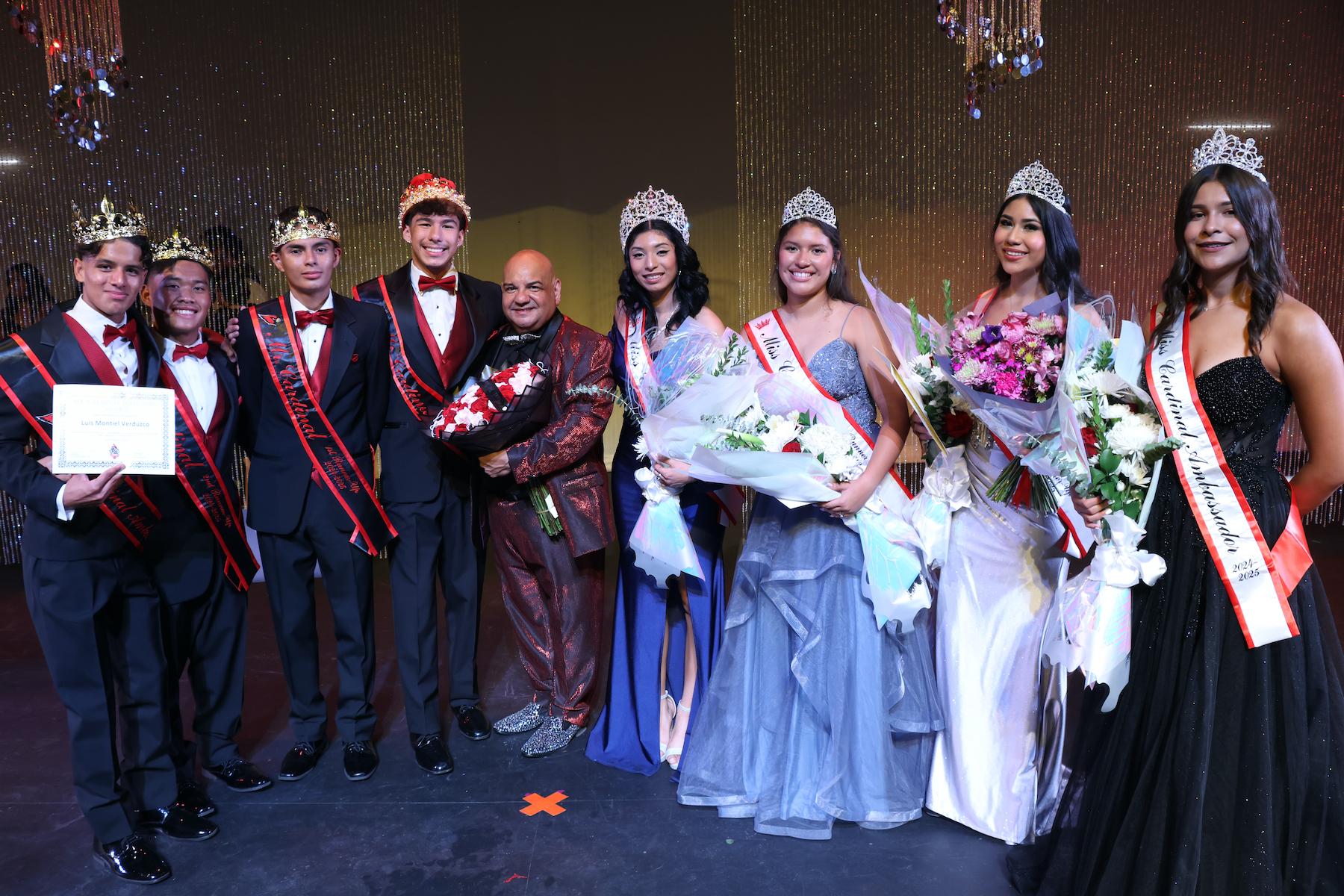LOS ANGELES — For David Ryu, serving on city council isn’t just about representing ethnic minorities. It’s about giving a voice to another underrepresented group.
“Even more underrepresented than Asians are the citizens [themselves],” Ryu, a Korean American, shared.
He is among 14 candidates who are vying to replace Councilman Tom LaBonge, who has represented the city’s 4th district since 2001.
As a result of redistricting in 2012, District 4 has been carved into an unusual shape, covering neighborhoods as east as Los Feliz and Silver Lake to parts of the San Fernando Valley, including Sherman Oaks, Toluca Lake and Studio City. Though the division “doesn’t make sense,” Ryu sees it as an advantage to his campaign, since most of the neighborhoods are new to the district.
To date, Ryu has personally knocked on over 3,000 doors, spending weekday afternoons and full days on the weekend on the ground and meeting with potential voters in the various neighborhoods.
In the district, there are 150,000 registered voters and with a diluted ballot, it only takes 4,000 votes to come out on top, noting the pattern of low voter turnout in local elections. Given this, one of the main components of Ryu’s campaign strategy is “exciting the base” through outreach events and going door to door. The campaign has also been making residents aware that there is an upcoming election on March 3 and that they can register until Feb. 17 to vote by mail.
Ryu, who is the director of development and public affairs at Kedren Acute Psychiatric Hospital and Community Health Center, one of the city’s largest non-profit health care providers, shared that being a product of the public school system and benefitting from social services motivated his candidacy.
“When I was younger, I was very embarrassed because I grew up poor,” Ryu, who migrated to Los Angeles from South Korea at 6 years old, shared. “I think it’s important that I share my story because my story isn’t [just mine,] it’s the…immigrant story — the American story.”
Ryu’s mother and father (a nurse and teacher, respectively) ended up working two to three jobs when they moved to the United States, despite being highly educated in South Korea.
Like most Asian parents, they wanted Ryu to be a doctor, so he entered pre-med at University of California, Los Angeles, but switched to economics by his junior year after eventually having the heart to tell his parents that he wanted to be a social worker. He fueled his desire to give back by working for a nonprofit that dealt with conflict resolution and coalition building, following the 1992 LA Riots. He went on to attend Rutgers University to study public policy and administration, and then interned at the United Nations.
But working as working as an aide to former LA County Supervisor Yvonne B. Burke for six years was when he really became interested in politics.
During his time working with budget, transportation and social issues, he learned “how government works and that government can work,” challenging his previously cynical view towards politics and elected officials.
“Then I realized this [was] the job I’ve always wanted to do, but never this is what it was,” he said, adding that he wants to change the conversation in City Hall since council members affect the day-to-day lives of city residents more than the federal government.
“When the elected officials have the will, they can get [things] done.”
Though District 4 seems disjointed in terms of coverage area, Ryu has observed three reoccurring themes that come up when listening to voters’ concerns: development, infrastructure, and access.
Big projects, such as shopping centers, apartment complexes and McMansions that block views or cause traffic, have been springing up, much to the disapproval of residents who believe they are “out of sync with the neighborhood.” In order to improve how projects are handled, according to Ryu, they need to be “transit-based” and “smart-growth” developments and have community participation from the very beginning.
Secondly, residents have voiced their frustrations with basic infrastructure issues, such as failing pipes or unpaved roads. Ryu gave examples of how many streets remained unpaved, while others get repaved every two years or so, and how some streets are cleaned in the middle of the day, which has been detrimental to some small businesses.
Lastly, in terms of access, residents aren’t aware of who exactly to call and who will respond, if they have such concerns that need immediate attention; and that’s why he’s urging them to vote in the first place.
While a lot of candidates and elected officials tout they are pro-small business, current laws in the city are hindering the growth of businesses. Another one of Ryu’s goals is to cut the red tape and promote the homegrown businesses of the city, especially given the large garment industry sitting in Downtown.
In a city where nearly 15 percent of the population is of Asian decent, there has only been one Asian American to sit on the council: Mike Woo, who won over 25 years ago.
Ryu isn’t running just to make a statement about filling an Asian American void on the council, but rather believing that the “best qualified candidates” should serve and reach out to constituents beyond his base supporters.
“We can actually win it on the ground,” he proclaimed. “The power of hard work in this election will win it.”
(www.asianjournal.com)
(LA Weekend February 7-10, 2015 Sec. A pg.1)



